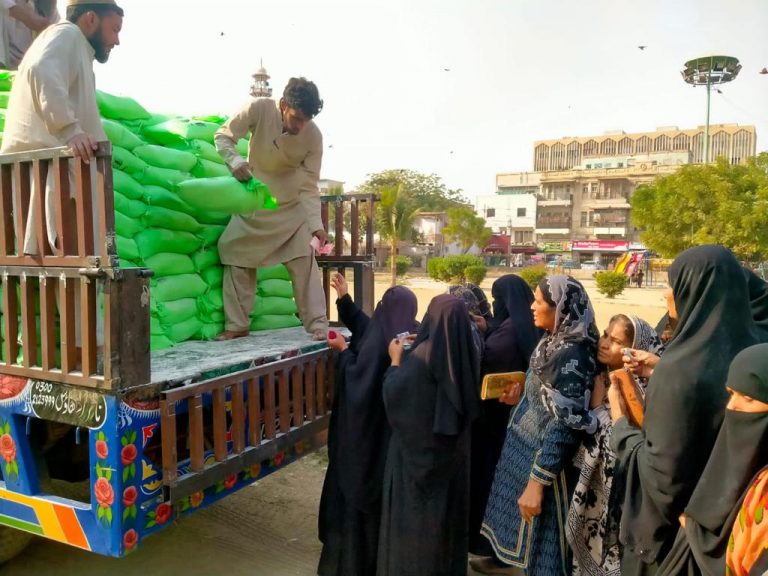
As the gap between the rich and poor widens, many families find it difficult to afford even the most basic necessities, let alone participate in the festivities
Shoukat Lohar
Eid, a time of joy, celebration, and togetherness, has always held a special place in the hearts of Muslims around the world.
For generations, this festival has been a time to come together with family and friends, to partake in delicious meals, exchange gifts, and engage in acts of charity. However, as time has passed, the way Eid is celebrated has evolved, reflecting the changing times and societal dynamics.
In the past, Eid was a time when families would eagerly prepare for the festivities. Weeks before the arrival of Eid, the excitement would start to build up. Homes would be thoroughly cleaned and decorated with colorful lights and ornaments.
New clothes would be bought or stitched, and traditional delicacies would be prepared in anticipation of the big day. Children would be especially excited, looking forward to receiving Eidi, which is a token of money given by elders as a gesture of love and blessings.
Eid was not just a one-day affair; it was a time for family gatherings that would last for several days. Relatives and friends would come from near and far to celebrate together.
The sense of community was palpable, with people visiting each other’s homes, sharing meals, and exchanging heartfelt greetings. The atmosphere was filled with laughter, music, and the aroma of delicious food wafting through the air. It was a time when differences were set aside, and bonds were strengthened, creating lasting memories that would be cherished for a lifetime.
One of the fondest memories of Eid for many is the “sweet Eid” tradition. It was a time when people would visit each other’s homes with plates of homemade sweets and exchange them as a gesture of goodwill.
This tradition not only symbolized the sweetness of the festival but also fostered a sense of community and goodwill among neighbors and friends.
However, as times have changed, the way Eid is celebrated has also evolved. Today, consumerism has taken center stage, with an increased focus on materialistic aspects rather than the spirit of the festival.
In many parts of the world, Eid has become synonymous with lavish spending, extravagant gifts, and ostentatious displays of wealth. The pressure to keep up with societal expectations and engage in a sense of competition to showcase affluence has become overwhelming for many.
For the poor and marginalized communities, the festival of Eid has become a stark reminder of their economic struggles
Moreover, in today’s world, Pakistan, like many other countries, is grappling with the worst inflation in recent times. The rising cost of living has made it challenging for many families, especially those from low-income backgrounds, to meet their basic needs, let alone indulge in the extravagance often associated with Eid. As a result, Eid has become a time of financial strain for many, adding stress and anxiety to an occasion that is meant to be joyous and celebratory.
For the poor and marginalized communities, the festival of Eid has become a stark reminder of their economic struggles. As the gap between the rich and poor widens, many families find it difficult to afford even the most basic necessities, let alone participate in the festivities.
The rising prices of essential items, including food and clothing, have made it increasingly challenging for them to celebrate Eid with the same fervor and enthusiasm as before.
In light of these challenges, it is essential to reflect on the true spirit of Eid and remember its core values.
Eid is not just about extravagant spending, extravagant gifts, or showcasing wealth. It is about fostering community, strengthening familial bonds, and expressing gratitude for the blessings of life. It is about spreading joy, happiness, and goodwill among all, regardless of their economic status.
As we navigate the changing landscape of Eid celebrations, it is crucial to find ways to make the festival more inclusive and meaningful for all. Instead of succumbing to consumerism.
Let’s expect something positive from these festivities and reduction in the woes of marginalized class.
_____________________
 Shoukat Lohar is Assistant professor in English at Mehran University of Engineering and Technology Jamshoro. He can be reached at Shoukat.ali@faculty.muet.edu.pk
Shoukat Lohar is Assistant professor in English at Mehran University of Engineering and Technology Jamshoro. He can be reached at Shoukat.ali@faculty.muet.edu.pk